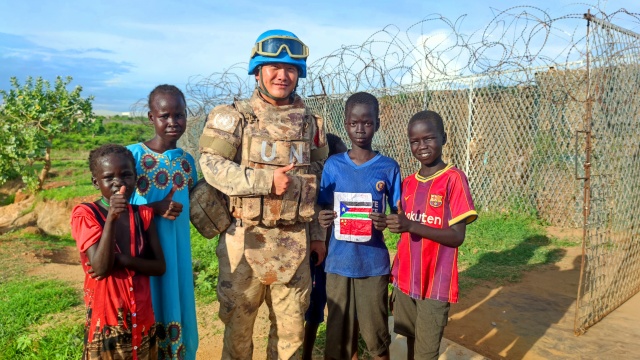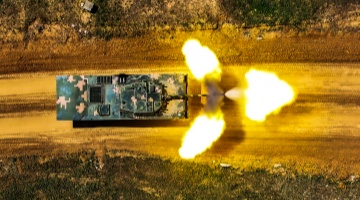By Niu Song
A senior official of the Palestinian Islamic Jihad (PIJ) in the Gaza Strip confirmed on May 13 that a ceasefire deal had been reached between the PIJ and Israel under the mediation of Egypt and it came into effect at 10 pm that day.
The conflict was sparked by Israeli attacks on the PIJ. The Israeli Defense Forces (IDF) launched Operation "Shield and Arrow" and carried out airstrikes on multiple PIJ military targets in the Gaza Strip, resulting in 12 deaths, including three senior PIJ members. In response, the PIJ began firing a large number of rockets toward southern and central areas of Israel from the afternoon of May 10. The IDF continued to carry out airstrikes on PIJ military targets.
This is the second large-scale conflict between Palestine and Israel this month. Khader Adnan, a senior PIJ member who was on a hunger strike in an Israeli prison, died in the early hours of May 2. The southern part of Israel was attacked by rockets from the Gaza Strip that afternoon, and the IDF dispatched fighter jets at night and launched air strikes on multiple military targets in the Gaza Strip. Under the mediation of Egypt, Qatar and the United Nations, the two sides reached a ceasefire agreement on May 3.
From a micro perspective, the two rounds of the Israeli-Palestinian conflict that occurred in May can be seen as a continuation of the ongoing tensions between the two sides since the beginning of this year. Since the formation of the far-right coalition government led by Benjamin Netanyahu in late 2022, Israel has taken more aggressive actions on issues such as the Temple Mount in Old City of Jerusalem (referred to as the Noble Sanctuary by Muslims) and Jewish settlements. In January, Itamar Ben-Gvir, Israel's first National Security Minister, entered the Al-Aqsa Mosque compound on the Temple Mount, sparking a series of confrontations and conflicts between Israelis and Palestinians. Israeli police entered the Al-Aqsa Mosque and clashed with Palestinians inside the mosque on April 5. This led to an escalation of the Israeli-Palestinian conflict. The death of senior PIJ member Adnan further exacerbated the tensions between the two sides.
From a macro perspective, these two conflicts are the latest manifestations of the continued deterioration of Palestinian-Israeli relations. With the signing of the Oslo Accords in 1993, the start of the Middle East peace process once brought the international community the dawn of peace between Palestine and Israel. However, Israeli Prime Minister Yitzhak Rabin was assassinated in November 1995, which cast a shadow over the exploring path of Palestine-Israel reconciliation. In 2000, Israeli Prime Minister Ariel Sharon forcibly entered the Al-Aqsa Mosque compound, which triggered the second Palestinian uprising. Since then, the Middle East peace process has stalled. At the same time, Palestine has also fallen into a state of division, that is, the contradiction between Fatah and Hamas has intensified, and a confrontation model of "two countries, three sides" between Israel, Fatah and Hamas has gradually formed. The Palestinian-Israeli conflict is increasingly manifested as a conflict between Israel and Hamas, and Israel's strike targets are mainly concentrated in the Gaza Strip. In recent years, the confrontational conflict between Israel and PIJ has escalated. Israel tries to treat PIJ and Hamas differently, to prevent PIJ and Hamas from joining forces to resist Israel.
The Middle East has ushered in a wave of reconciliation since March this year, which has put a certain amount of strategic pressure on Israel. On March 19, Egypt hosted the five-party talks in Sharm El-Sheikh attended by Palestine, Israel, Jordan, the US, and Egypt to ease the situation between Palestine and Israel. However, it takes more than one cold day for the river to freeze three feet deep, after Israel's far-right government came to power, members of the ruling coalition continued to cross the red line on the issue of religious holy sites and Jewish settlements in Jerusalem. The political forces in Palestine are clearly divided and they could not form a joint force to counter Israel, and the attitudes of various parties towards Israel are also different. There is little hope of a fundamental reconciliation of Palestine-Israel relations in the foreseeable future.
(The author is a researcher at the Institute of Middle East Studies of Shanghai International Studies University)









